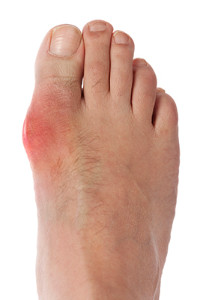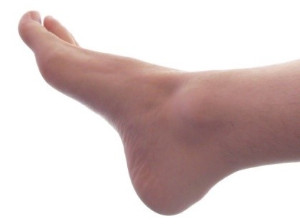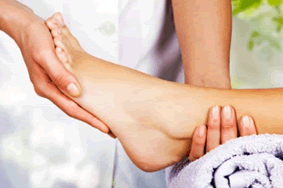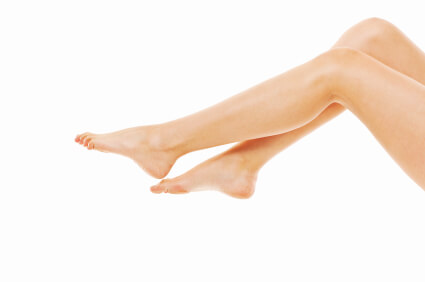Items filtered by date: January 2017
Diets Healthy for Gout
 If you are currently living with gout, knowing how to keep your uric acid levels down is absolutely vital in maintaining good overall health. Eating a low-purine diet is something that needs to be done to stay healthy. High fiber and low fat foods are ideal. For instance, drink 1% milk instead of whole milk. Also, eat low-purine fruits like oranges, grapefruits, and kiwi. These fruits produce less uric acid than others. Limiting carbohydrate intake is important as well. Instead of drinking fruit juices, drink vegetable juice. Low-purine vegetables include: cucumber, kale, cabbage, carrots, and beets.
If you are currently living with gout, knowing how to keep your uric acid levels down is absolutely vital in maintaining good overall health. Eating a low-purine diet is something that needs to be done to stay healthy. High fiber and low fat foods are ideal. For instance, drink 1% milk instead of whole milk. Also, eat low-purine fruits like oranges, grapefruits, and kiwi. These fruits produce less uric acid than others. Limiting carbohydrate intake is important as well. Instead of drinking fruit juices, drink vegetable juice. Low-purine vegetables include: cucumber, kale, cabbage, carrots, and beets.
Gout is a foot condition that requires certain treatment and care. If you are seeking treatment, contact one of our podiatrists from Carolina Foot & Ankle. Our doctors will treat your foot and ankle needs.
What Is Gout?
Gout is a type of arthritis caused by a buildup of uric acid in the bloodstream. It often develops in the foot, especially the big toe area, although it can manifest in other parts of the body as well. Gout can make walking and standing very painful and is especially common in diabetics and the obese.
People typically get gout because of a poor diet. Genetic predisposition is also a factor. The children of parents who have had gout frequently have a chance of developing it themselves.
Gout can easily be identified by redness and inflammation of the big toe and the surrounding areas of the foot. Other symptoms include extreme fatigue, joint pain, and running high fevers. Sometimes corticosteroid drugs can be prescribed to treat gout, but the best way to combat this disease is to get more exercise and eat a better diet.
If you have any questions please feel free to contact one of our offices located in Huntersville Office | 16419 Northcross Dr Suite A, Huntersville, NC 28078; Mooresvillle Office | 206 Joe Knox Avenue Suite D, Mooresville, NC 28117; and Mountain Island | 10310 Couloak Drive Suite 200, Charlotte, NC 28216 . We offer the newest diagnostic and treatment technologies for all your foot and ankle needs.
What Are Plantar Warts?
 There are over 100 different varieties of HPV, or human papilloma virus. Nearly 12% of the global population have had warts at one time, and plantar warts are but one of these types. They all share one basic characteristic, they have the ability to infect skin cells. Many people, when they hear the term HPV, think that it refers to genital warts. But this is not the case, and HPV can manifest itself in many different forms. Plantar warts occur on the feet, typically on the palms or the soles. They can be flat or raised, and usually occur in dry, cracked areas of the foot. Treatments vary in scope and effectiveness. If you think you may have a plantar wart, talk to your podiatrist and go through the treatment options available.
There are over 100 different varieties of HPV, or human papilloma virus. Nearly 12% of the global population have had warts at one time, and plantar warts are but one of these types. They all share one basic characteristic, they have the ability to infect skin cells. Many people, when they hear the term HPV, think that it refers to genital warts. But this is not the case, and HPV can manifest itself in many different forms. Plantar warts occur on the feet, typically on the palms or the soles. They can be flat or raised, and usually occur in dry, cracked areas of the foot. Treatments vary in scope and effectiveness. If you think you may have a plantar wart, talk to your podiatrist and go through the treatment options available.
Plantar warts can be very uncomfortable. If you need your feet checked, contact one of our podiatrists from Carolina Foot & Ankle. Our doctors will assist you with all of your foot and ankle needs.
About Plantar Warts
Plantar warts are the result of HPV, or human papillomavirus, getting into open wounds on the feet. They are mostly found on the heels or balls of the feet.
While plantar warts are generally harmless, those experiencing excessive pain or those suffering from diabetes or a compromised immune system require immediate medical care. Plantar warts are easily diagnosed, usually through scraping off a bit of rough skin or by getting a biopsy.
Symptoms
- Lesions on the bottom of your feet, usually rough and grainy
- Hard or thick callused spots
- Wart seeds, which are small clotted blood vessels that look like little black spots
- Pain, discomfort, or tenderness of your feet when walking or standing
Treatment
- Freezing
- Electric tool removal
- Laser Treatment
- Topical Creams (prescription only)
- Over-the-counter medications
To help prevent developing plantar warts, avoid walking barefoot over abrasive surfaces that can cause cuts or wounds for HPV to get into. Avoiding direct contact with other warts, as well as not picking or rubbing existing warts, can help prevent the further spread of plantar warts. However, if you think you have developed plantar warts, speak to your podiatrist. He or she can diagnose the warts on your feet and recommend the appropriate treatment options.
If you have any questions please feel free to contact one of our offices located in Huntersville Office | 16419 Northcross Dr Suite A, Huntersville, NC 28078; Mooresvillle Office | 206 Joe Knox Avenue Suite D, Mooresville, NC 28117; and Mountain Island | 10310 Couloak Drive Suite 200, Charlotte, NC 28216 . We offer the newest diagnostic and treatment technologies for all your foot and ankle needs.
Holiday Weight Gain Increases Risk of Health Problems
 The holidays would not be complete without the endless gathering of family and friends, enjoying vast amounts of delicious food, decadent sweets, and festive cocktails. However, self-indulging in these treats go hand-in-hand with a heightened risk of health problems. Not only does weight gain increase your risk for things like heart attack and stroke, but it affects your body on a musculoskeletal level. Individuals who may be overweight or obese must also take into account the extra pressure they are placing on their feet, in particular, their arch. The amount of force placed on our feet can cause much pain and damage to the ankle, leg, and hip due to improper weight distribution. It is important to always keep yourself on a good exercise routine to lower your risk of weight-gain, especially around the holiday season.
The holidays would not be complete without the endless gathering of family and friends, enjoying vast amounts of delicious food, decadent sweets, and festive cocktails. However, self-indulging in these treats go hand-in-hand with a heightened risk of health problems. Not only does weight gain increase your risk for things like heart attack and stroke, but it affects your body on a musculoskeletal level. Individuals who may be overweight or obese must also take into account the extra pressure they are placing on their feet, in particular, their arch. The amount of force placed on our feet can cause much pain and damage to the ankle, leg, and hip due to improper weight distribution. It is important to always keep yourself on a good exercise routine to lower your risk of weight-gain, especially around the holiday season.
Obesity has become very problematic at this point in time and can have extremely negative effects on the feet. If you’re an obese individual and are concerned about your feet, contact one of our podiatrists from Carolina Foot & Ankle Specialists. Our doctors can provide the care you need to keep you pain-free and on your feet.
Obesity and your Feet
Since your feet are what support your entire weight when standing, any additional weight can result in pain and swelling. Being overweight is one of the main contributors to foot complications.
Problems & Complications
Extra Weight – Even putting on just a few extra pounds could create serious complications for your feet. As your weight increases, your balance and body will shift, creating new stresses on your feet. This uneven weight distribution can cause pain, even while doing the simplest tasks, such as walking.
Diabetes – People who are overweight are at serious risk of developing type-2 diabetes, which has a drastic impact on the health of your feet. As you get older, your diabetes might worsen, which could lead to loss of feeling in your feet, sores, and bruises. You could also become more prone to various infections.
Plantar fasciitis – Pressure and stress that is placed on muscles, joints, and tendons can trigger plantar fasciitis, which is an inflammation of tissue that forms along the bottom of the foot.
If you have any questions please feel free to contact one of our offices located in Huntersville, Mooresville and Mountain Island, NC. We offer the newest diagnostic and treatment technologies for all your foot and ankle needs.
Managing Your Morton’s Neuroma
 Morton’s neuroma is a foot condition that often affects middle-aged women, especially those who wear narrow shoes. While benign, the condition can be very painful; pain typically affects the front of the foot and extends to the toes. Pain flare-ups tend to occur in response to irritation, trauma, or excessive pressure. Morton’s neuroma pain can be made worse by continual walking, especially while wearing narrow shoes. Morton’s neuroma can be diagnosed through a number of methods including clinical examinations, MRIs, or ultrasound. If you suspect you have Morton’s neuroma, be sure to contact your podiatrist.
Morton’s neuroma is a foot condition that often affects middle-aged women, especially those who wear narrow shoes. While benign, the condition can be very painful; pain typically affects the front of the foot and extends to the toes. Pain flare-ups tend to occur in response to irritation, trauma, or excessive pressure. Morton’s neuroma pain can be made worse by continual walking, especially while wearing narrow shoes. Morton’s neuroma can be diagnosed through a number of methods including clinical examinations, MRIs, or ultrasound. If you suspect you have Morton’s neuroma, be sure to contact your podiatrist.
Morton’s Neuroma is a very uncomfortable condition to live with. If you think you have Morton’s neuroma, contact one of our podiatrists from Carolina Foot & Ankle Specialists. Our doctors will attend to all of your foot and ankle needs.
Morton’s Neuroma
Morton's neuroma is a painful foot condition that commonly affects the areas between the second and third or third and fourth toe, although other areas of the foot are also susceptible. Morton’s neuroma is caused by an inflamed nerve in the foot that is being squeezed and aggravated by surrounding bones.
What Increases the Chances of having Morton’s Neuroma?
- Ill-fitting high heels or shoes that add pressure to the toe or foot
- Jogging, running or any sport that involves constant impact to the foot
- Flat feet, bunions, and any other foot deformities
Morton’s neuroma is a very treatable condition. Orthotics and shoe inserts can often be used to alleviate the pain on the forefront of the feet. In more severe cases, corticosteroids can also be prescribed. In order to figure out the best treatment for your neuroma, it’s recommended to seek the care of a podiatrist who can diagnose your condition and provide different treatment options.
If you have any questions please feel free to contact one of our offices located in Huntersville, Mooresville and Mountain Island, NC. We offer the newest diagnostic and treatment technologies for all your foot and ankle needs.
Winter Coming, Cracked Heels Abound
 As winter approaches, we all know how important it is to make sure to keep our skin from getting too dry. Just as we use balms and moisturizers for our face and hands, there are many ways to protect against dry and cracked feet and heels. Glycerin lotions are some of the best remedies for combatting dryness. Hydrogenated oils are also very effective moisturizers, and can be used not only on your feet, but your ankles and legs too. In addition, fruits such as bananas and pineapples have plentiful amounts of helpful enzymes to ensure smooth and crack-free feet and ankles.
As winter approaches, we all know how important it is to make sure to keep our skin from getting too dry. Just as we use balms and moisturizers for our face and hands, there are many ways to protect against dry and cracked feet and heels. Glycerin lotions are some of the best remedies for combatting dryness. Hydrogenated oils are also very effective moisturizers, and can be used not only on your feet, but your ankles and legs too. In addition, fruits such as bananas and pineapples have plentiful amounts of helpful enzymes to ensure smooth and crack-free feet and ankles.
Cracked heels are unsightly and can cause further damage to your shoes and feet. If you have any concerns, contact one of our podiatrists from Carolina Foot & Ankle. Our doctors can provide the care you need to keep you pain-free and on your feet.
Cracked Heels
Cracked heels are unappealing, and make it harder for you walk around in sandals. Not only may they look bad, but they can also tear stockings, socks, and wear out your shoes. There are several methods to help restore a cracked heel and prevent further damage.
How do you get them?
Dry skin is the number one culprit in creating cracked heels. Many athletes, walkers, joggers, and even swimmers suffer from cracked heels. Age and skin oil production play a role to getting cracked heels as well.
Promote Healing
Over the counter medicines can help, especially for those that need instant relief, or who suffer from chronic dry feet.
Wear Socks – wearing socks with medicated creams, helps lock in moisture so it can stay on longer.
Moisturizers – applying it both day and night will help alleviate dryness which causes cracking.
Pumice Stones – these remove dead skin, and then you can massage cream onto your foot. This way the cream will be absorbed. The skin needs to be exfoliated; therefore the outer layer dead skin needs removal.
Change in Diet
Eating healthy, with a well-balanced diet, will give the skin a fresh and radiant look. Your body responds to what kinds of food you ingest. Omega-3 fatty acids and zinc supplements will also help with skin tissue.
Most importantly seek a health professional for foot care if something is wrong or doesn’t seem to be working. A podiatrist will help you with any questions or information needed.
If you have any questions please feel free to contact our offices located in North Carolina. We offer the newest diagnostic tools and technology to treat your foot and ankle needs.
